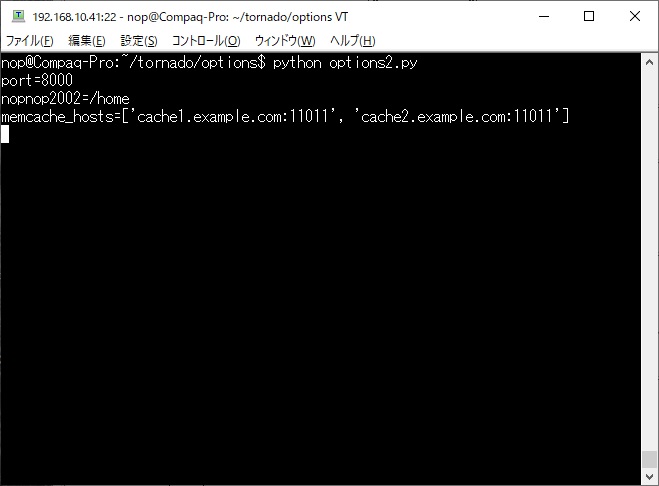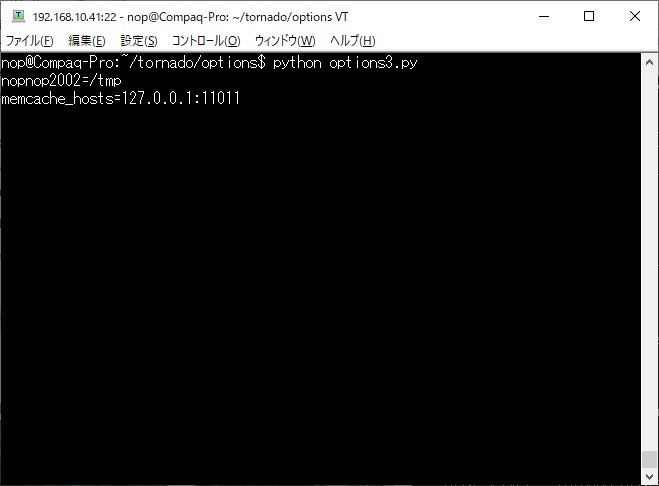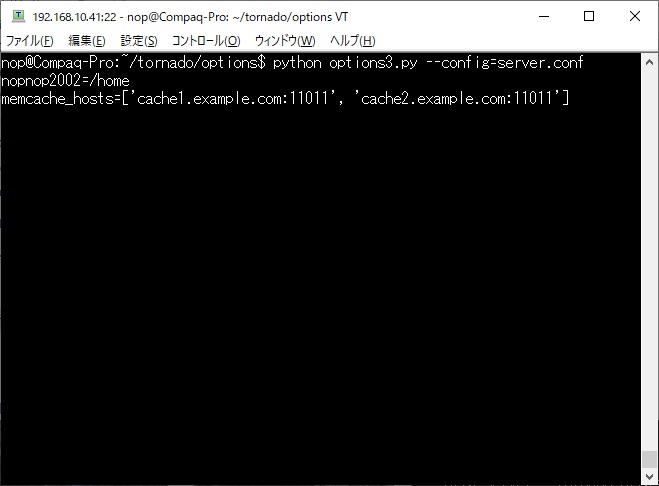# |
portとnopnop2002はデフォルトの値となります。
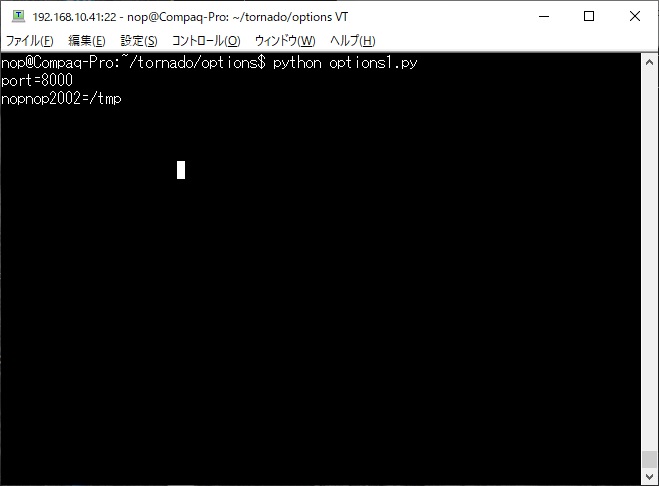
--nopnop2002の引数付きでスクリプトを起動すると、nopnop2002の値が変わります。
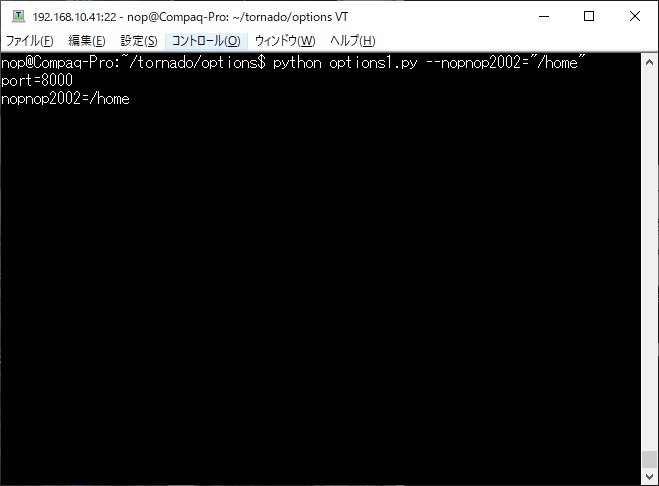
--helpの引数付きでスクリプトを起動すると、optionの一覧を表示します。
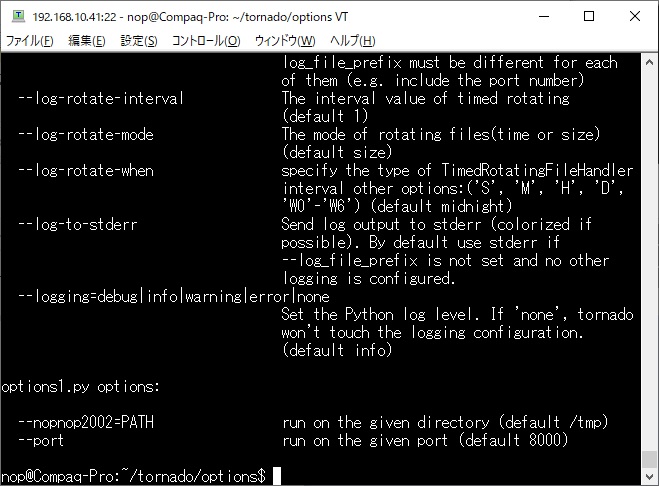
こちらの ドキュメントに以下の記載が有ります。
Dashes and underscores are fully interchangeable in option names;
options can be defined, set, and read with any mix of the two.
Dashes are typical for command-line usage while config files require underscores.
オプションの名前に「_」(アンダースコアー)が含まれている場合、アンダースコアー(_)はダッシュ(-)に置き換えられます。
# |
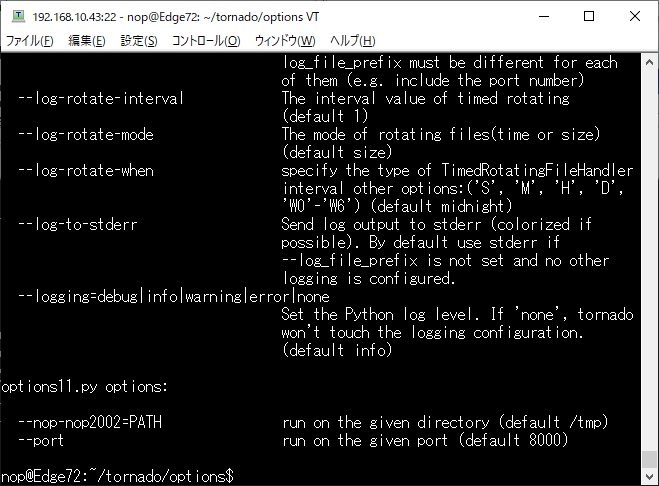
起動時に指定する名前は「nop-nop2002」ですが、スクリプト内では「nop_nop2002」で参照します。
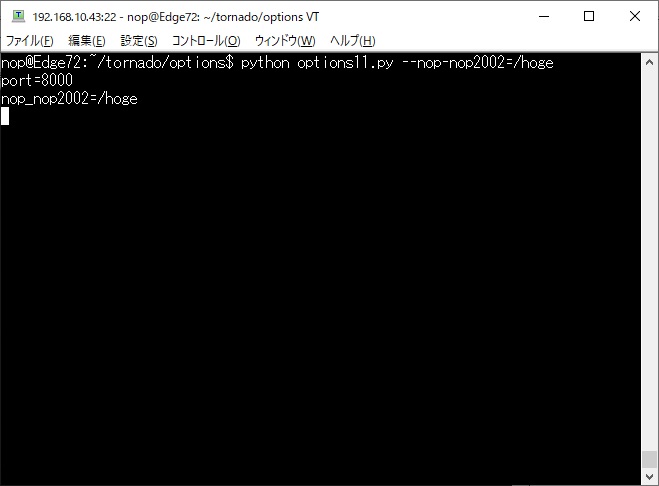
parse_config_file()を使うと、optionの値をファイル(server.conf)に定義することができます。
# |
server.confはスクリプトと同じフォルダーに以下の内容で定義します。
multiple=Trueのオプションについては、リストも定義することができます。
nopnop2002 = '/home' |
